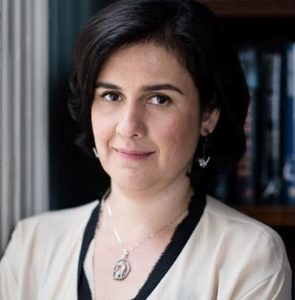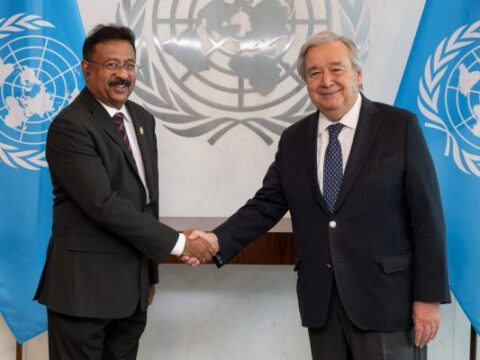LONDON:The English Patient, the wartime love story by renowned Sri Lankan-born Canadian author Michael Ondaatje, and published by Bloomsbury, has been crowned the best work of fiction from the last five decades of the Man Booker Prize.
Ondaatje’s tale of love and conflict during World War II was awarded the Golden Man Booker Prize for fiction. The winner was revealed at the closing event of the Man Booker 50 Festival in Royal Festival Hall at Southbank Centre in London.
All 51 previous winners of the Man Booker Prize, one of the world’s most prestigious literary awards, were considered by a panel of five specially appointed judges, each of whom was asked to read the winning novels from one decade of the prize’s history, before the books faced a month-long public vote on the Man Booker website. The online poll to choose the winner of this special one-off award for the Man Booker Prize’s 50th anniversary celebrations, altogether drew 9,000 votes.
 Last year’s winner, Lincoln in the Bardo by George Saunders, was selected by the poet Hollie McNish. Simon Mayo, a novelist and broadcaster, chose the 2009 prize winner Wolf Hall by Hilary Mantel.
Last year’s winner, Lincoln in the Bardo by George Saunders, was selected by the poet Hollie McNish. Simon Mayo, a novelist and broadcaster, chose the 2009 prize winner Wolf Hall by Hilary Mantel.
The poet Lemn Sissay picked Moon Tiger by Penelope Lively, the winner in 1987. And Robert McCrum, a writer and editor, selected In a Free State by V.S. Naipaul, which won in 1971.
The English Patient was selected by the novelist Kamila Shamsie to represent the 1990s.
Booker Prize Foundation’s Chairperson Baroness Helena Kennedy in a statement said The English Patient is a compelling work of fiction — both poetic and philosophical.
“As we celebrate the prize’s 50th anniversary, it’s a testament to the impact and legacy of the Man Booker Prize that all of the winning books are still in print,” she said.

The English Patient won the Booker in 1992 in a tie, sharing the prize with British author Barry Unsworth and his historical novel Sacred Hunger.
In 1996, The English Patient was adapted into a movie starring Ralph Fiennes as the desert explorer Làszlò Almàsy, Juliette Binoche as his nurse Hana and Kristin Scott Thomas as the married Katharine Clifton. It went on to win nine Oscars at the 69th Academy Awards including Best Picture and Director.
Michael Ondaatje is one of only two authors whose work has won the Booker Prize and an Oscar.
The English Patient opens in an abandoned Italian villa at the end of the Second World War where Hana, a nurse, tends to her sole remaining patient.
Rescued from a burning plane, the anonymous Englishman is damaged beyond recognition and haunted by painful memories. The only clue Hana has to unlocking his past is the one thing he clung on to through the fire – a copy of The Histories by Herodotus, covered with hand-written notes detailing a tragic love affair.
Ondaatje is one of the world’s foremost writers, whose work has influenced an entire generation of writers and readers. Although he is best known as a novelist, Mr Ondaatje’s work also encompasses poetry, memoir, and film, and reveals a passion for defying conventional form. His latest novel, Warlight, has just been published by Jonathan Cape.
“The English Patient is that rare novel which gets under your skin and insists you return to it time and again, always yielding a new surprise or delight,” judge Kamila Shamsie, said in a statement.
“It moves seamlessly between the epic and the intimate — one moment you’re in looking at the vast sweep of the desert and the next moment watching a nurse place a piece of plum in a patient’s mouth.”
“Few novels really deserve the praise: transformative. This one does,” she added.

Shamsie said Ondaatje’s novel, published at a time when “borders seemed much more assured,” had a different resonance in the current climate, amid “anxieties about borders and anxiety about migrants and other people.”
“We’ve all read lots of books about the Second World War. We think of it, with good reason, as the good war,” she said.
“And I think it is really brave and remarkable the way he goes into that story and says war is trauma, and war is about separating people by nations when there are so many other reasons for them to be together,” she added.
She also said that The English Patient stood out, due to the Sri Lankan-born Canadian author’s treatment of his female characters.
“A lot of books by male writers are only interested in the lives of men – they may be wonderful books, but the women figure quite peripherally,” she said. “Hana to me is the centre of the novel, and is done with such love, care and understanding and complexity.”
Founded in 1969, the Man Booker prize was originally open to British, Irish and Commonwealth writers, but eligibility was expanded in 2014 to all English-language novelists. The first winner was named in 1969.
Speaking at the close of the Man Booker 50 festival in the Southbank Centre, London, on Sunday, Ondaatje said he had not reread The English Patient since 1992.
“Not for a second do I believe this is the best book on the list, especially when it is placed beside a work by VS Naipaul, one of the masters of our time, or a major work like Wolf Hall,” he said.
The Toronto-based Ondaatje paid tribute to the late film director of The English Patient, Anthony Minghella, “who I suspect had something to do with the result of this vote.”
Ondaatje was born in Sri Lanka in 1943, moved to England in the early 1950s and came to Canada in 1962.
While he’s lived in Canada ever since, he’s reflected on his native country in books including 2011’s The Cat’s Table, about a young boy who journeys from Sri Lanka to England on an ocean liner in the early 1950s. In his 2000 novel Anil’s Ghost, a forensic anthropologist returns to her native Sri Lanka to investigate suspected mass political murders amid a civil war.




